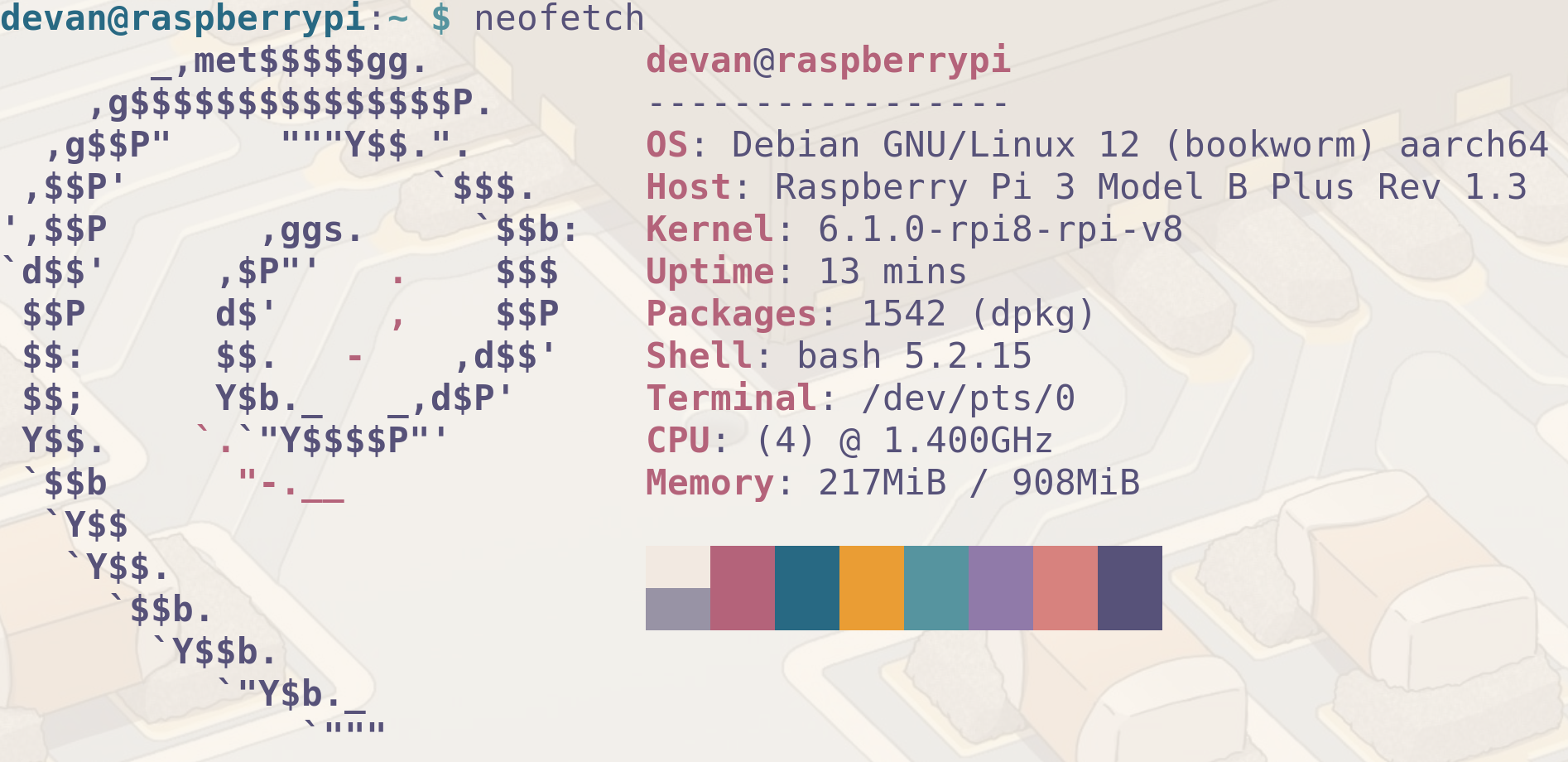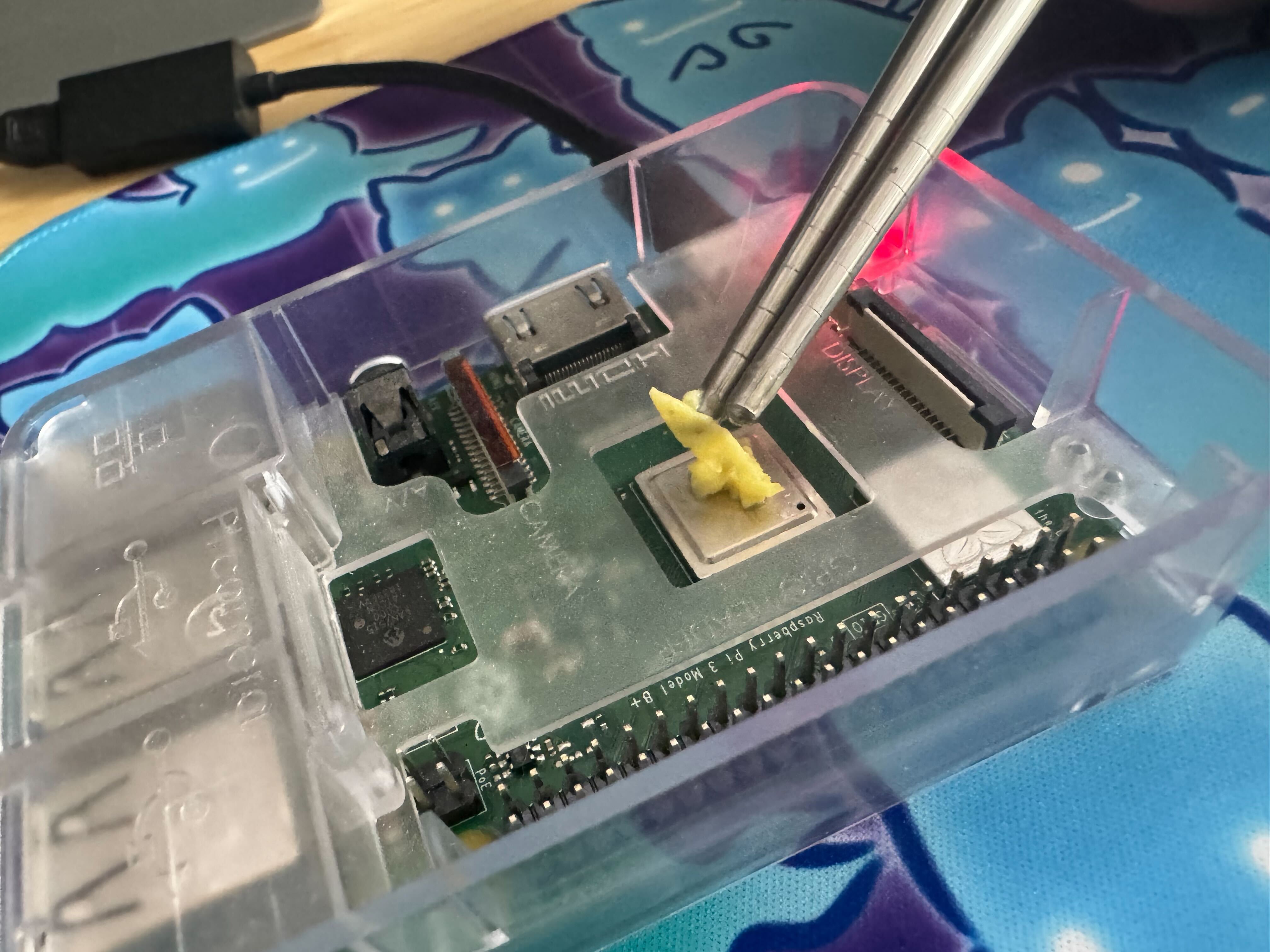tpchgen-rs on a raspberry pi
Or how I learned to stop worrying and love the lack of resources
Recently I read through https://datafusion.apache.org/blog/2025/04/10/fastest-tpch-generator/ which discusses https://github.com/clflushopt/tpchgen-rs
Blazing fast TPCH benchmark data generator, in pure Rust with zero dependencies.
I was quite impressed by the metrics gathered by the team working on it. But, after taking a look at the machine they had used, a Macbook Air M3 with 16GB of memory I thought to myself... 16GB of memory? In this economy?! So I dusted off my old Raspberry Pi with 4 whole gigabytes of memory (spoiler: it did not have 4 whole gigabytes of memory).
The TL;DR tpchgen-rs performs better than alternatives when it comes to generating TPC-H data.
You may be wondering, what even is TPC-H? And if you're not wondering that's fine because I'm going to tell you anyway! As described by the specification:
TPC-H is a decision support benchmark. It consists of a suite of business-oriented ad hoc queries and concurrent data modifications. The queries and the data populating the database have been chosen to have broad industry-wide relevance. This benchmark illustrates decision support systems that examine large volumes of data, execute queries with a high degree of complexity, and give answers to critical business questions.
Or, put plainly. TPC-H is a series of tables and queries to perform benchmarks on databases.
After SSH'ing in to my Raspberry Pi

1GB of Memory
It has 1GB of memory. I had my very own Mandela Effect moment.
Regardless. The show must go on! Unfortunately, this Pi was too under-powered for me to compile any modern Rust or C++ programs. So I took to building a statically linked binary for tpcgen-cli from the tpcgen-rs repository. I also downloaded a DuckDB ARM binary for comparison later on.
In order to build for the rust target armv7-unknown-linux-gnueabih I had to first install the cross compiler for ARM and add the target.
❯ sudo apt -y install gcc-arm-linux-gnueabihf && rustup target add armv7-unknown-linux-gnueabih
And after running
❯ cargo build --target=armv7-unknown-linux-gnueabihf --release
We get a cross built binary! Ensuring that it's statically linked I can copy it over to my Pi.
❯ cd target/armv7-unknown-linux-gnueabihf/release && file tpchgen-cli
tpchgen-cli: ELF 32-bit LSB executable, ARM, EABI5 version 1 (GNU/Linux), statically linked, BuildID[sha1]=f5292640e67555bfd6e0886ae33d99215abb4b4b, for GNU/Linux 3.2.0, not stripped
I proceeded to run tpchgen-rs setting it to use a scale factor of 1 and output parquet as the file format.
❯ time ./tpchgen-cli -s 1 --format=parquet
real 1m15.101s
user 2m59.192s
sys 0m7.555s
Well... not too bad if I say so. A little over a minute to run at a scale factor of 1. Alrighty--lets try out DuckDB next.
❯ ./duckdb
D INSTALL tpch;
D LOAD tpch;
D CALL dbgen(sf = 1);
And finally after patiently waiting about a few minutes. The results are in!
client_loop: send disconnect: Broken pipe
Unfortunately DuckDB eats up all the memory in about ~15 seconds and turns my Pi into a small space heater.

With a small amount of oil and egg mixture I was able to cook myself a nice breakfast.
And that leads us to the performance comparison
And now, dear reader, you may be wondering. What about higher scale factors! Well fret you not. I also ran scale factors of 10 & 100. Scale factor 10 actually performed quite well. Scale factor 100 on the other hand crashed after about 15 minutes.
The final results
Feel free to mosey on over to https://github.com/clflushopt/tpchgen-rs and give them a star.
Here's to building the next generation of big data tooling in Rust 🥂

